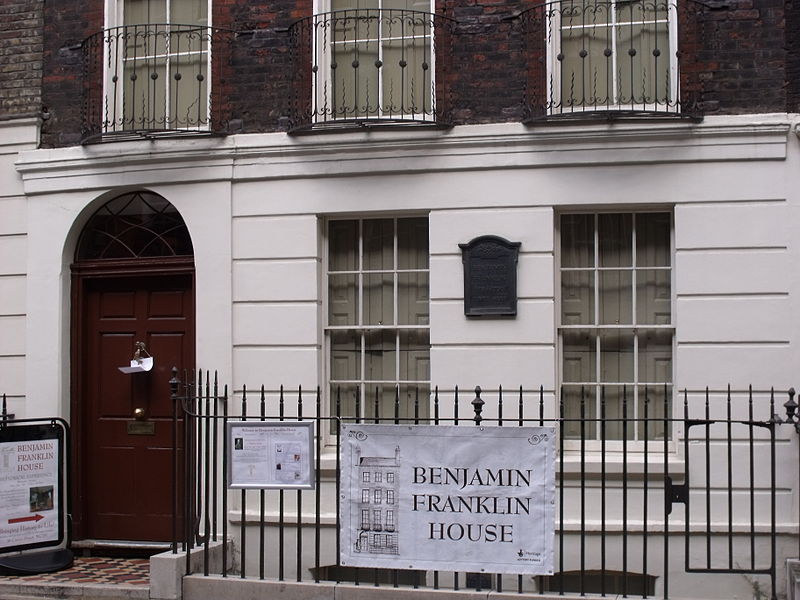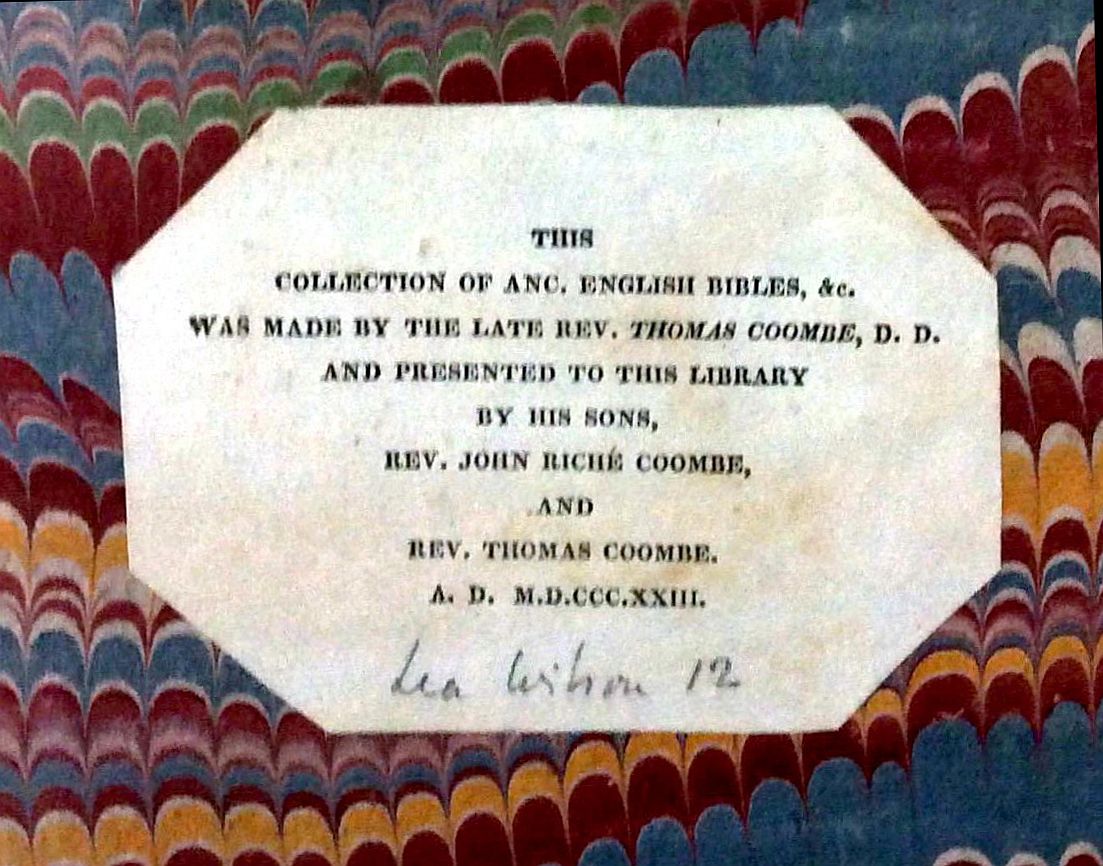From prison in Philadelphia to a canonry at Canterbury Cathedral
The Rev. Dr Thomas Coombe (1747–1822) was born in Philadelphia, Pennsylvania, where his father was health officer of the port of Philadelphia. He was educated at the Academy and College of Philadelphia (now the University of Pennsylvania) taking his bachelor’s degree in 1766 and master’s degree in 1768. The College’s founding president was Benjamin Franklin, a friend of Coombe’s father.
 36 Craven Street, London
36 Craven Street, London(Wiki Commons)
Thomas Coombe then travelled to England to seek ordination in the Church of England, staying for a time in London with Benjamin Franklin at his house at 36 Craven Street (near present-day Trafalgar Square) when Franklin was serving as the London agent for the Pennsylvania Assembly and then as Postmaster for the British North American colonies. Coombe was ordained deacon by the Bishop of London in the Savoy Chapel in 1769 and priest in 1771. He served for a time as chaplain to the marquess of Rockingham.
Church of England clergyman and American loyalist
 Christ Church, Philadelphia
Christ Church, Philadelphia(Wiki Commons)
Coombe then returned to Pennsylvania in 1772 to take up posts as an assistant minister at Christ Church and at St Peter’s, Philadelphia. Although he had earlier supported the cause of the colonists against the English government, at the outbreak of the American War of Independence he felt that his oath as an ordained Anglican clergyman would not permit him to swear to uphold the Declaration of Independence. Consequently Coombe was among other loyalists who were imprisoned.
Warrant to arrest certain persons. Pennsylvania, 1 August 1777.
‘…in consequence of a resolve of Congress, dated yesterday, to authorise and require you to imprison & remove to such places as you shall see fit the persons whose names are mentioned and contained in the list hereunto subjoined …’
He was eventually allowed to depart for England in 1779.
Coombe enjoyed the patronage of Lord Carlisle in England and also in Ireland where he obtained his doctorate of divinity from Trinity College, Dublin, in 1781. He spent many years as a preacher in London and was also appointed a chaplain to King George III. In 1800 he was appointed a prebendary (canon) of Canterbury Cathedral (Stall VII), was also vicar of Tenterden (1801–1806) and from 1807 rector of St Michael Queenhithe and Trinity the Less, London, where he mainly lived until his death in 1822. He was an active member of the committee for the abolition of the slave trade.
The Coombe Collection

As a book collector he formed a library of historic Bibles and prayer books of the sixteenth century which his sons, Rev. John Riché Coombe (1774–1855) and Rev. Thomas Coombe the Younger (1796–1876), presented to Canterbury Cathedral Library. The books bear a book plate with the text ‘This collection of anc. English Bibles, &c. was made by the late Rev. Thomas Coombe, D.D. and presented to this library by his sons, Rev. John Riché Coombe, and Rev. Thomas Coombe A.D. M.D.CCC.XXIII’. The collection includes copies of significant early editions of English translations of the Bible from the reign of Henry VIII and versions of the Book of Common Prayer and its predecessors from the Tudor period.
Items in the Coombe Collection can be searched for on the University of Kent’s library catalogue using the following search : <Search>
Sources:
James B. Bell, ‘Coombe, Thomas (1747–1822)’, Oxford Dictionary of National Biography, Oxford University Press, 2004; online edn, Jan 2008
Don Corbly, Pennsylvania’s Traitors and Criminals During the Revolutionary War, Raleigh, North Carolina, 2013, p. 36.
Dear David, I enjoyed reading your facinating and excellent mini-biography of my ancestor Thomas Coombe. I believe I’m his only living male direct descendant – and unfortunately have no children. But if you don’t mind I’ll print it out for my nephew to put amongst his family records.
Best wishes, Nick Coombe. London